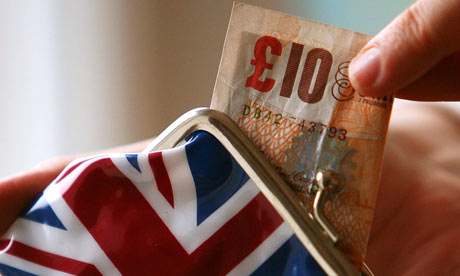 According to new data from the Office for National Statistics, wages have caught up with inflation. The increase in average earnings comes after almost six years of low wages relative to CPI inflation.
According to new data from the Office for National Statistics, wages have caught up with inflation. The increase in average earnings comes after almost six years of low wages relative to CPI inflation.
Consumer Prices Index (CPI) inflation measured 1.6% in March, down from 1.7% in February. The average weekly wage increased by 1.7% during February, exceeding the rate of inflation for the first time since 2010.
The average wage figure used by the Office for National Statistics includes bonuses paid to employees during the month of February. When bonuses are excluded, the average wage growth decreases to 1.4 per cent – slightly below CPI inflation.
More statistics released by the Office for National Statistics reveal the real decline in buying power over the last decade. While wages have increased by upwards of 1.4% per month in the last year, prices have surged over the past six years.
Since July of 2008, the average UK wage has increased 8.6 per cent. In the same time period, prices have risen by 16.9 per cent. Economists have called the gap between wages and prices a “colossal” issue for the UK economy.
Some analysts believe it will take years for wages to catch up with the huge increase in living costs that has occurred since 2008. The Office for Budget Responsibility has claimed that it will take until 2018 for spending power to return to its 2009 level.
The income statistics have also revealed some interesting facts about private sector and public sector compensation. Private sector workers have benefited from 2 per cent annual wage growth, while public sector earn just 0.9% more every year.
Critics of the Office for National Statistics figures have pointed out that, because they exclude the approximately 4 million self-employed workers in the UK, they may not accurately reflect pay conditions for the country as a whole.





